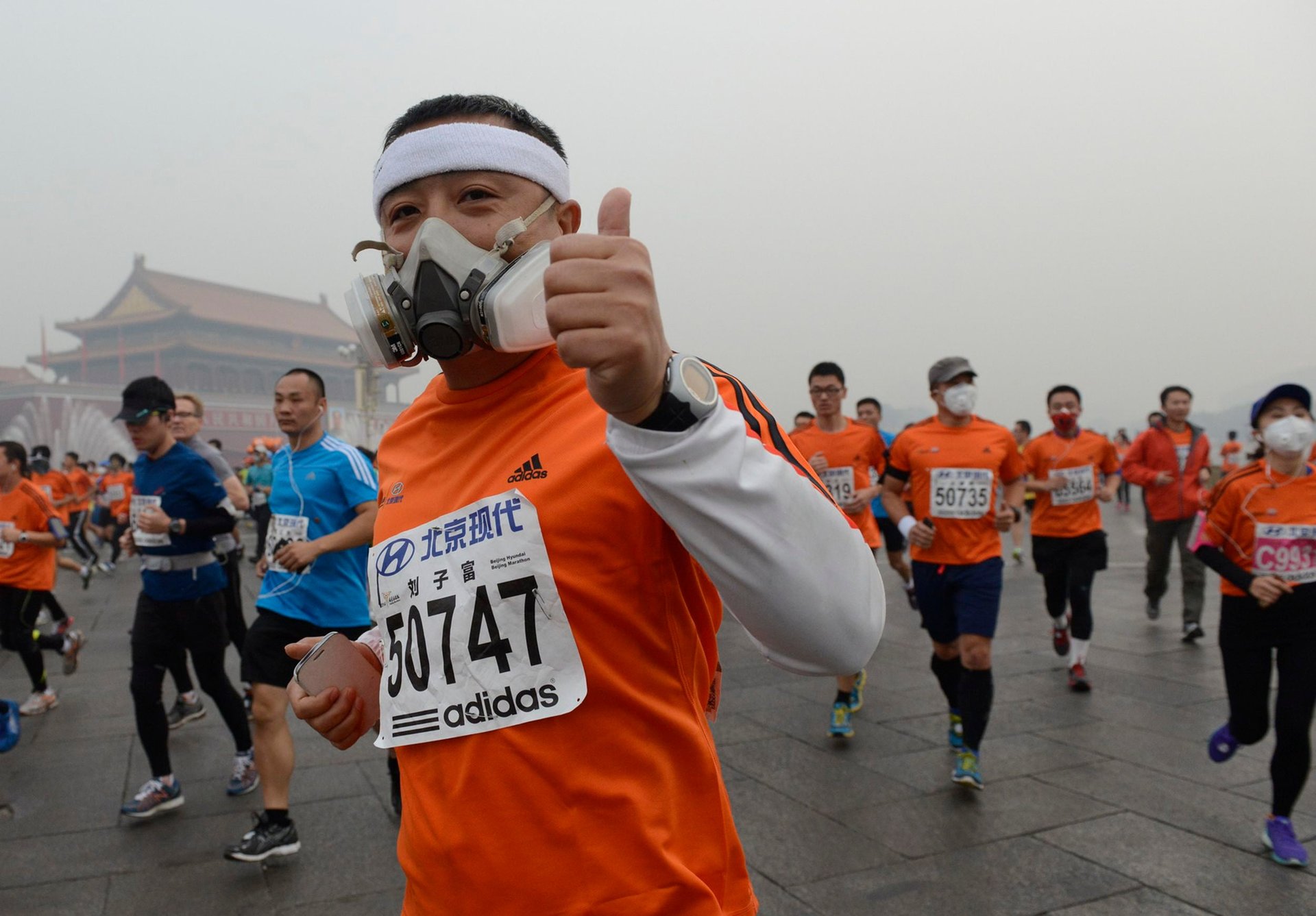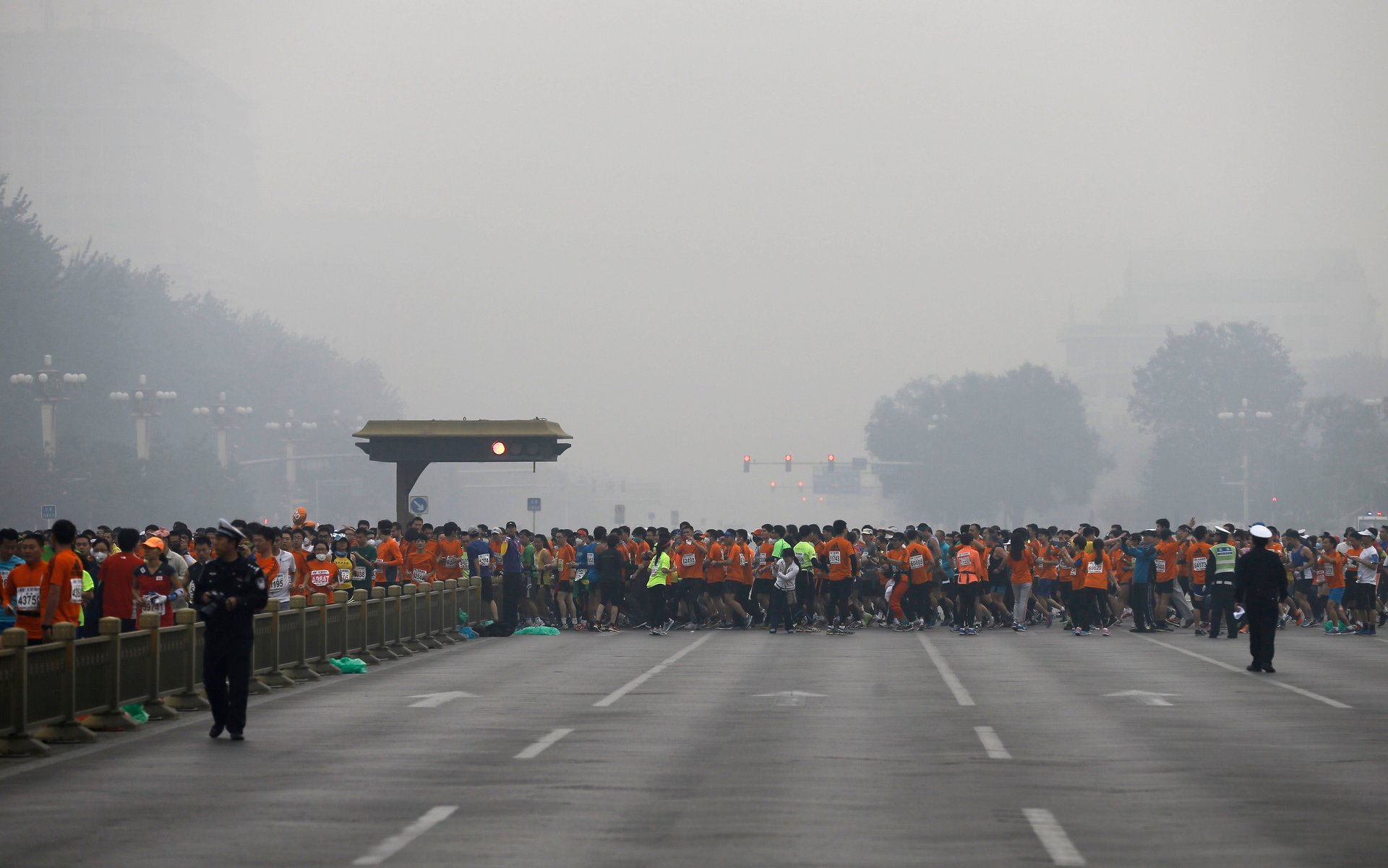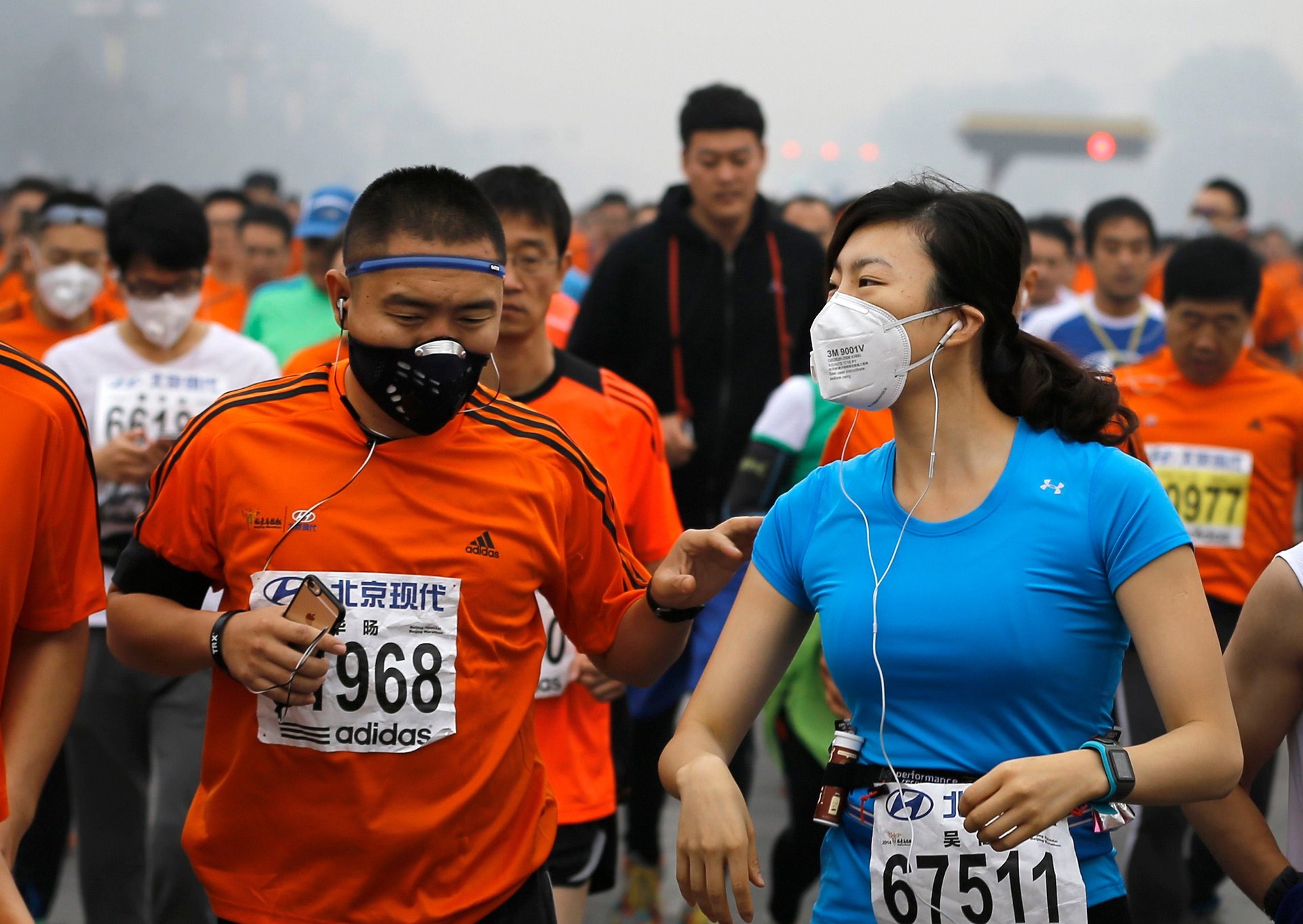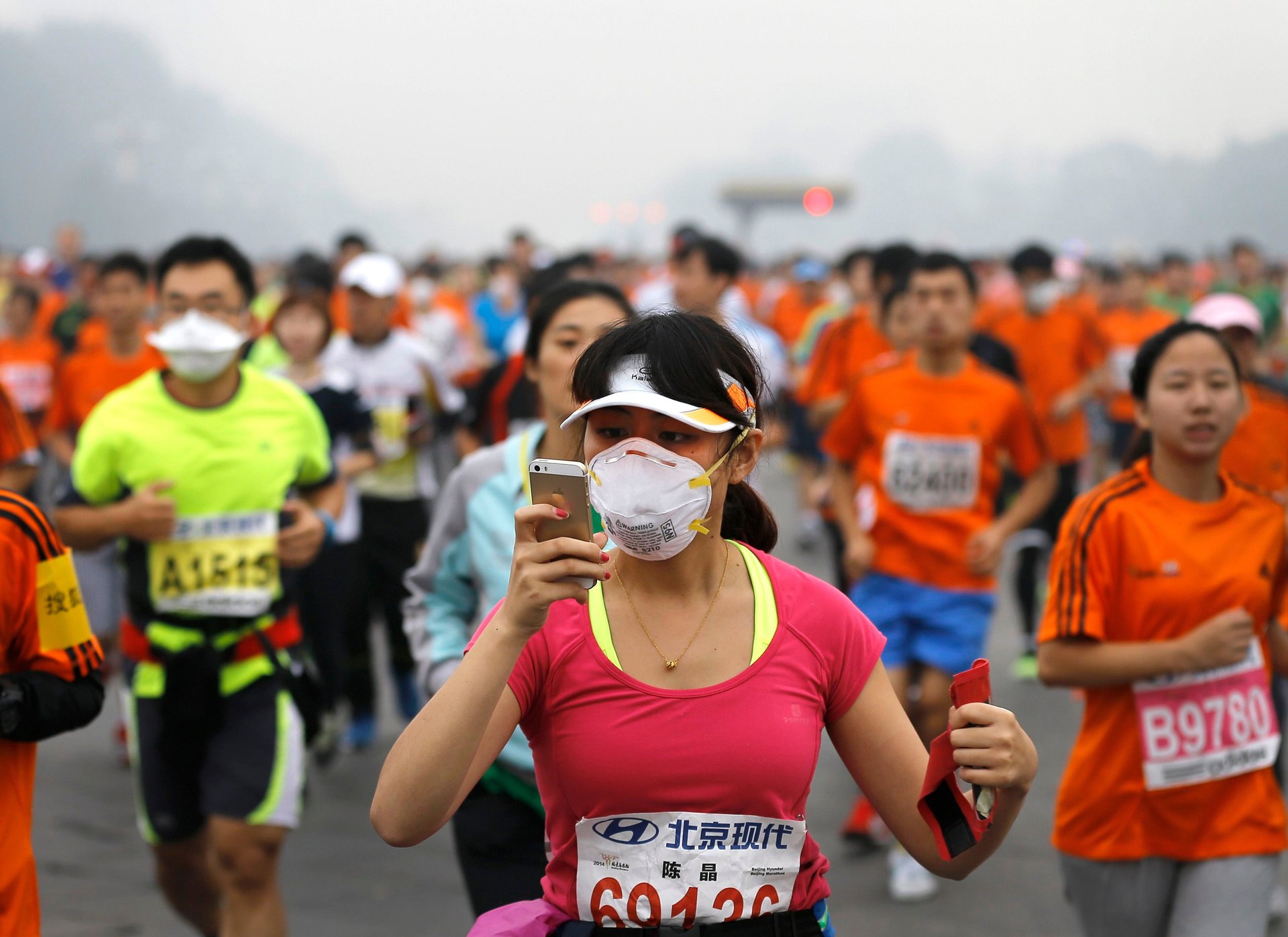Beijing broke its own air-quality rules and held a marathon in toxic conditions
Runners World has concluded that it will take a wide range of geographic, psychological, and demographic factors to achieve a sub two-hour marathon—the current record stands at 2:02:57. It’s safe to say that none of the factors involve thick clouds of lung-choking smog, like at this weekend’s Beijing Marathon.
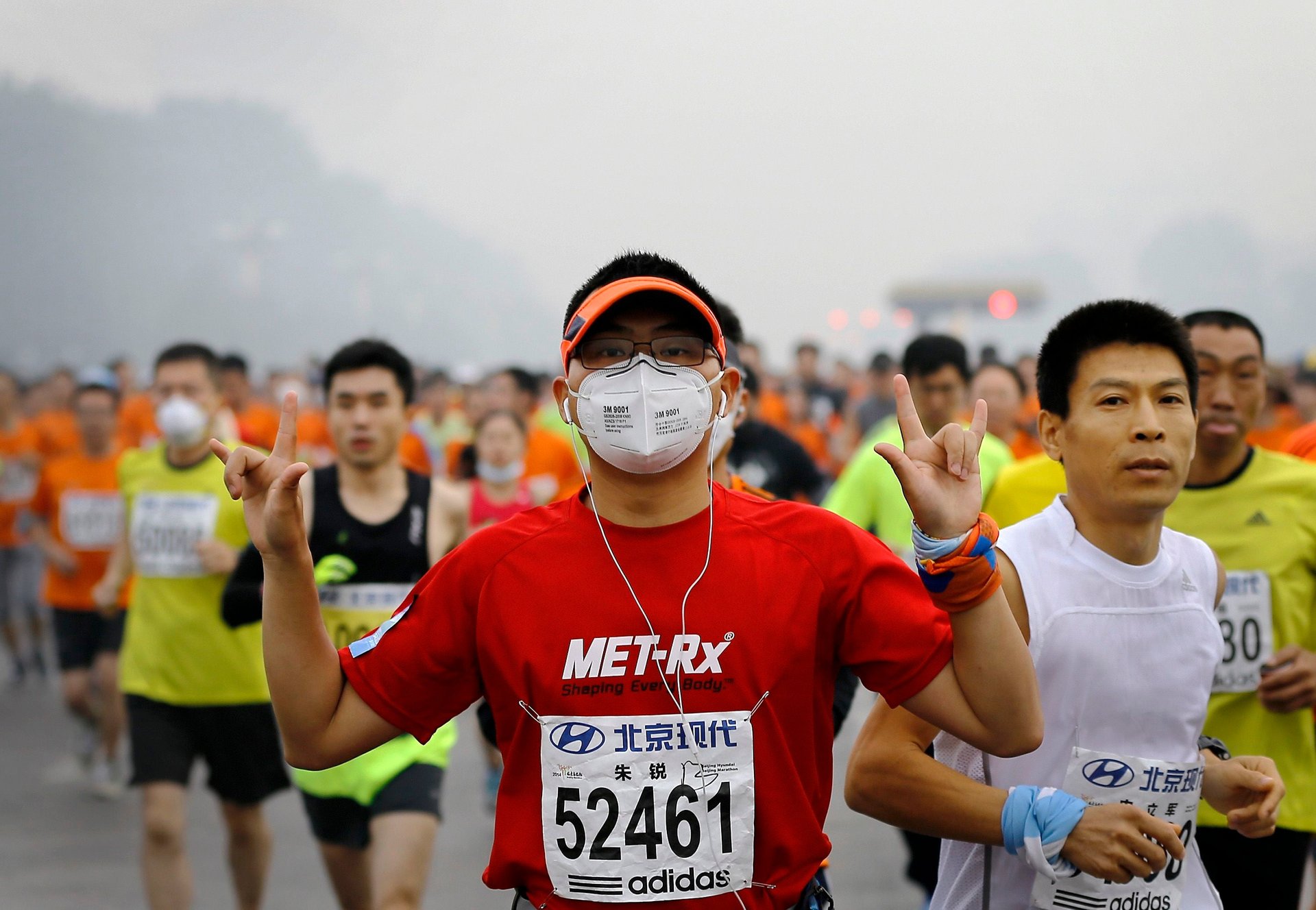

Runners World has concluded that it will take a wide range of geographic, psychological, and demographic factors to achieve a sub two-hour marathon—the current record stands at 2:02:57. It’s safe to say that none of the factors involve thick clouds of lung-choking smog, like at this weekend’s Beijing Marathon.
The amount of PM2.5 particulate matter—the most dangerous kind of air pollution, which is carried deep into your lungs and then your bloodstream—hit an Air Quality Index reading of 442 on Sunday morning before the race. At that level, China normally advises people to avoid outdoor sports and activities, and to use filtration masks when outdoors. Breathing that much pollution on any given day will reduce your life span by an average of about eight hours, and that’s without factoring in the extreme exertion of a marathon, which makes the risks much worse.
This weekend’s smog was widely forecast by Chinese health officials; after years of denial, the country is now relatively open about its dangerous air pollution problem. (India, on the other hand, can’t even measure how bad the air is in cities like New Delhi, which is widely considered to have some of the world’s dirtiest air.)
And yet, according to the Beijing News via the AP, the race committee still opted to hold the event “because of all the planning that had gone into it.” Instead, organizers passed out sponges so runners could “clean their skin that is exposed to the air.”
Not surprisingly, a small percentage of the 30,000 runners decided to bring their own face masks. Girhay Birhanu Gebru and Fatuma Sado Dergo of Ethiopia won the men’s and women’s competition. Both runners’ times were well off the world-record pace.
